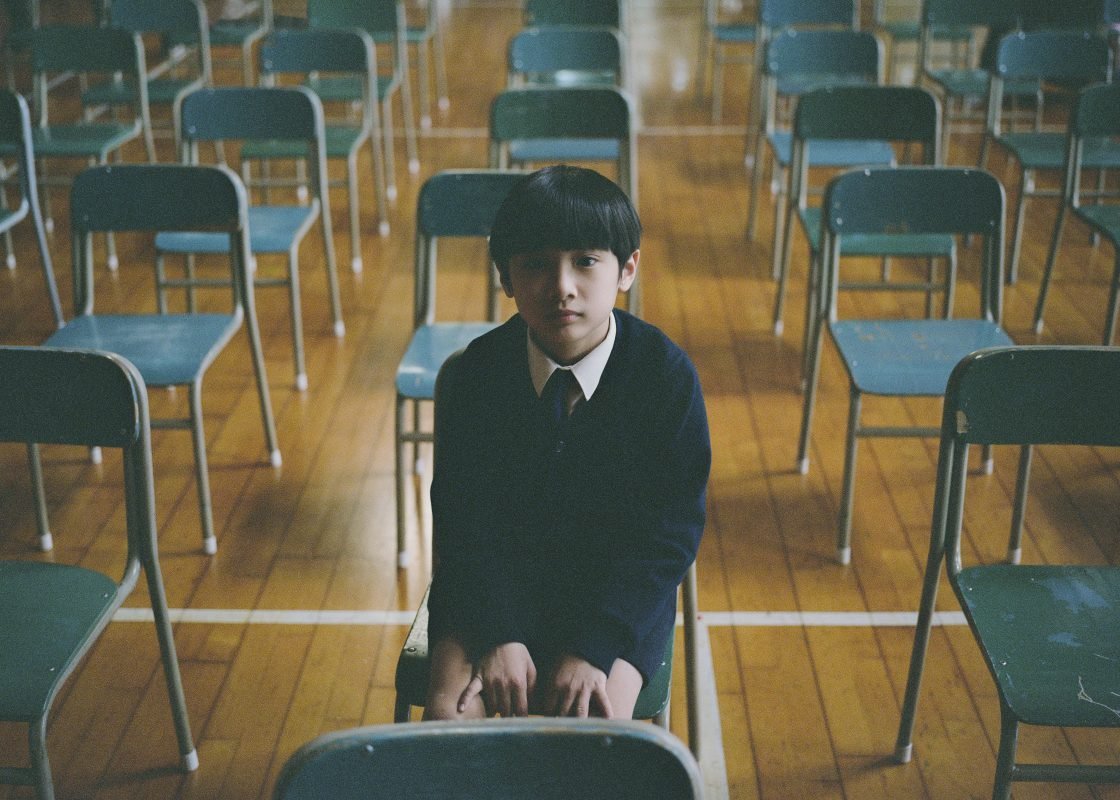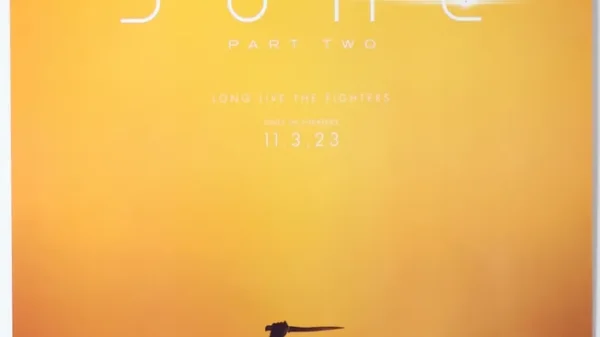Staff Writer Vingie Lau reflects on the pressure of parental expectations and the cost for children – the main topics of the movie ‘Time Still Turns The Pages‘.
Standing on the peripheral brink, in the opening scene, the young boy poises to leap into the void. In that heart-stopping moment, I was sure he had plunged into an irreparable fate, only to realise that he was jumping onto another block beneath him, unleashing his accumulated stress into the frantic world. This scene, which poignantly played with my perception, flooded my mind with memories of a friend. We tend to assume everything is irreversible: our fate and relations are permanent. However, this is not always the case – they can vanish abruptly from your life.
I vividly remember the last time I saw her — it was at her funeral, a few days before her birthday. The casket closed with a solemn thud, and soon enough, the metallic door of the elevator did, too. He stood unmoving against the white wall, his watery eyes fixated on the air’s stillness. The memories of his daughter’s chubby face, hilarious jokes and affective laughter suffused his mind. Now, all had vanished into a bittersweet relic.
In that fleeting moment, it seemed that everything had slipped away. In front of him, there was only a cold body — distorted and surrounded by blooming flowers, whispering their final farewell. He had tried to suppress it, but at that instant, his tears surged to his eyes, and he began to wail. Haunted by memories, he replayed each harsh word and behaviour with which he had treated her. He lamented his heavy hand snatching away her paintbrush, replacing it with a violin bow, and slapping her face for disobeying his order. He regretted beating her with a duster for failing to make the top scores in school or winning the interschool swimming competition. Had he known earlier that such a quest for perfection would come with this steep price, he would have treated her more delicately, for she was only a child brimming with fantasies.
As I reflected on the profound sorrow and grief of the father at the funeral, I was reminded of the heart-wrenching scenes in ‘Time Still Turns the Pages’. The film delves into the complexities of the loss and grief of a parent encountering the death of his beloved child, highlighting mental health issues and parental teachings on children’s development.
Similar films on mental health have been of salient focus in Hong Kong cinema, with award-winning films like ‘Mad World’, and ‘Beyond the Dream’ grappling with labyrinth issues of mental health and a schizophrenic’s quest for love and reality. Distinctively, ‘Time Still Turns the Pages’ offers a more nuanced exploration of juvenile mental health and the cataclysmic impact of excessive parental manipulation. Directed and written by Nick Cheuk, the film casts a critical lens on the indelible imprints of familial influence, scrutinising the juvenile psyche.
It seamlessly weaves the past and present of student suicide, the misguided parental approaches and Hong Kong’s educational system to delve into the harrowing themes of suicide and depression. Revolving around a secondary school teacher, Mr Cheng, the audience embarks on an introspective odyssey, as he revives the memories of his brother Eli’s demise while investigating a discarded suicidal note at the school.
The flashback of the sorrowful past lies beneath Mr Cheng’s inner tumult: his constant lingering grief and the struggle to reconcile with the patriarchal, goal-driven father figure. Eli’s diary, a poignant narrative of the past, emerges as a critical motif, interconnecting the past and present despair shared by students: the long-ignored result-driven cut-throat academic competition and the absence of parental affirmation. The flipped pages of the diary entries candidly reveal his relentless effort to live up to his parent’s expectations and his earnest apology for not being the desirable child.
In Mr Cheng’s childhood anguish, I see a shared story of the generation: one of puppets with a relentless drive for perfection and compliance with societal norms, parental expectations and aspirations. We were often trapped in following the blueprint that the long-established, rigid society proposed. It told us that academic results and career aspirations qualify an individual’s success.
Since childhood, we have been lined up in various extracurricular activities and courses. These are not merely courses or activities for nurturing an interest but an entry ticket to the esteemed institution. We were told only exceptional candidates and children would be accepted – well-recognised and loved by the teachers, society, and their parents. We encountered teachers whose rigidity was like steel iron, whose words were sharp and unyielding, constantly reprimanding us until we fulfilled their expectations. We wailed and requested to change tutors but were doggedly denied; instead, we were soothed with falsehood.
“These draconian teachers will transform your pain into triumph. Be thankful for having met such tutors,” they replied. Then, we met the horrendous demon — examination. As requested by the parents, we had been practising the same piano piece for hours. Our hands were sore due to hourly practice and we begged to halt it. “If you do not ace this exam with exceptional results, no school will accept you,” they denounced us for our laziness, then compared us to another child prodigy who had achieved distinction.
We were raised believing academic excellence was the sole way to lead a successful life. The doctrine was evident in our world: only top scorers would secure a spot in an esteemed university, leading to a promising future, an enviable career and societal recognition. As we transitioned from childhood to adolescence, reality became more daunting. It turned out the promise of independence and autonomy coming with age was only a façade; instead, we found ourselves under even more stringent scrutiny and compelled to attend additional classes to pass the university entry exams.
The educational system is paradoxical: while it seemingly encourages us to find our identity and passion, it subtly steers us towards socially acceptable pursuits – a future the institutions envisioned with our parents. Arrange various exams, quizzes, and dictations to ensure you have well-revised and recited the curriculum. “Only if you achieve the top score can you be accepted to university; otherwise, you will regret it,” they constantly assert, guiding us to a well-trodden path.
We began to find ourselves in a rigorous and intensive drilling regimen – a ‘strategic move’ to ensure we were ahead of our counterparts. Rebellious, we may have secretly participated in some classes or clubs without their approval, only to be faced with more oppressive control and rules that further strangled us. “You will be thankful for what we have done for you,” they said calmly, leaving us behind in a confined space packed with shelves of books, notes and endless exercises.
While watching the film, these heart-wrenching, probably commonly shared, childhood scenes flooded my mind. Like Eli, we may often be told by our parents that their parental teachings are for our good, granting us a promising future. They acknowledge how horrendous, how arduous the future would be if one goes astray and does not follow the blueprint. As we grow older, we find ourselves plunging into their expectations of success. Our push for a thriving future is not solely for our own good but to attain the societal status they have longed for. Much like Eli, our once-individual passions and interests have likely been restricted by the narrowly defined version of success and replaced with a structured path, leaving little room for our meandering imagination.
The film poignantly navigates the concept of parental love and expectation. It is not simply a reflection of this long-forgotten unfair education system but more on the nature of parental affection: does steering children towards a socially recognised path encapsulate the meaning of parental love? Or does it risk stifling their imagination, individuality, and feelings? Is nurturing tantamount to adhering to societal norms or following the kids’ unique potential? Suppose we, as adults, value our individuality and autonomy and dislike being heavily manipulated or boxed in by various guidelines and regulations. Why do we need the children to follow strictly the socially recognised path instead of thriving in their own way, showcasing their uniqueness and strengths?
Unlike other films, ‘Time Still Turns the Pages’ may not be predominantly a polemical critique of the education system. However, the evocative and contemplative narrative delves into the complexities of parenthood. Its closer examination of parental love, often entangled with norms and expectations, compels us to re-evaluate our societal perceptions. In love, perhaps, is woven more than discipline and punishment; instead, it is about accompanying, appreciating and giving freedom – for the children to paint their path rather than stand in constant comparison and competition.


















